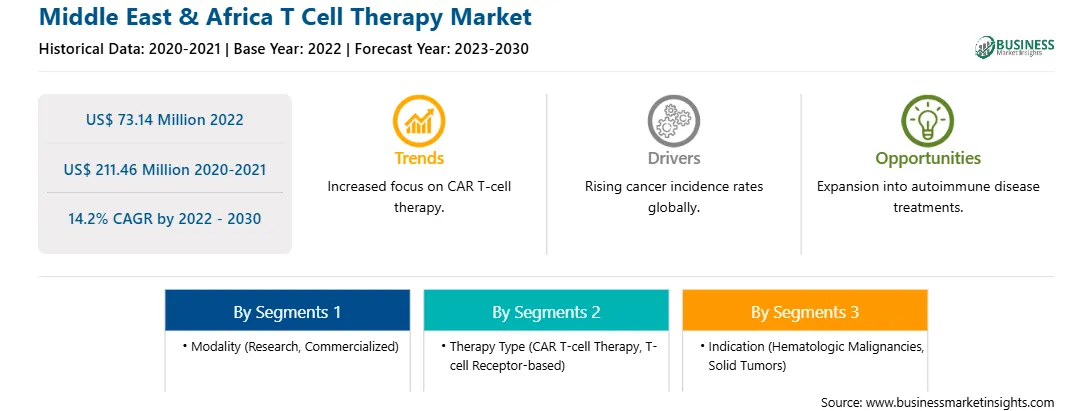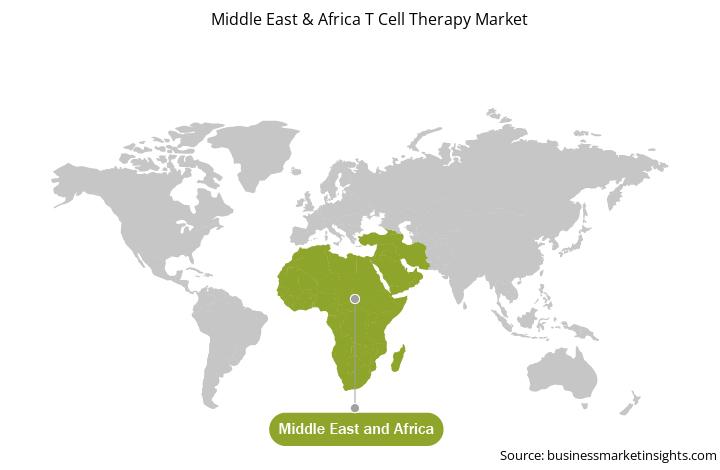The current landscape for CAR T-cell therapies across the globe is promising, with multiple drug approvals, a rich pipeline, and many ongoing clinical trials. Pipelines of CAR T-cell therapies are in various stages of clinical development; major pharmaceutical companies are working to advance the pipeline space and future growth potential of the CAR T-cell therapy competitive domain.
• In November 2022, Peter MacCallum Cancer Centre and Cartherics Pty Ltd entered into a Collaborative Development Program Agreement (CDPA) to develop Cartherics’ proprietary autologous CAR T cell therapy (CTH-001) for treating cutaneous T-cell lymphoma (CTCL). The key aspects of the collaborative research are setting up clinical-scale manufacturing of CTH-001 and conducting a Phase I clinical trial. It will initially enroll six patients with refractory CTCL.
• JW Therapeutics drug JWCAR029 is a CAR T cell product that targets CD19 and is intended to treat advanced lymphoma and leukemia. The molecule is currently in Phase II of development. JWCAR029 is initially being investigated for treating B-cell malignancies, focusing on relapsed and refractory DLBCL.
• Gilead Sciences drug KTE-X19 is an autologous CD19 CAR T-cell therapy under investigation. The drug is manufactured using the XLP process, including T-cell selection and lymphocyte enrichment. Lymphocyte enrichment is required in certain B-cell malignancies for which KTE-X19 is being studied. KTE-X19 is currently in Phase II clinical trials for the treatment of both adult and pediatric acute lymphocytic leukemia. The FDA has approved Brexucabtagene autoleucel (formerly KTE-X19; Tecartus) for treating adult patients with relapsed or refractory mantle cell lymphoma (MCL).
• ZUMA-3 is a Phase 1/2 study evaluating KTE-X19, an autologous anti-CD19 CAR T-cell therapy, in adult relapsed/refractory (R/R) B-cell acute lymphoblastic leukemia (B-ALL).
• Descartes-11, a mRNA CAR T-cell therapy, has moved into a Phase II clinical trial for newly diagnosed, high-risk multiple myeloma (MM) patients. Descartes-11 expresses CAR T-cell molecules transiently and avoids some characteristic toxicities of these therapeutic agents. A Phase I study (NCT03994705) of 18 patients has already been undertaken, and results showed no evidence of cytokine release syndrome or neurotoxicity—adverse events commonly associated with CAR T-cell treatment.
Thus, the pipelines above for CAR T-cell therapies are emerging as a new trend in the Middle East & Africa T-cell therapy market.
The T-cell therapy market in the Middle East & Africa is segmented into Israel, Saudi Arabia, South Africa, and the Rest of Middle East & Africa. The T-cell therapy market in the Middle East & Africa is anticipated to grow due to the approval of CAR T-cell therapies and increasing healthcare expenditure. In September 2022, Gilead and Kite established a fully functional cell therapy business unit after the regulatory approval of T-cell therapies such as Yescarta and Tecartus. T-cell therapies will soon be available for the Saudi Arabian population. According to an article published by the National Library of Medicine, CAR T-cell therapy is not yet approved in the UAE; however, it is expected to be approved within the next 2 years.
The Middle East & Africa T cell therapy market is segmented into modality, therapy type, indication, and country.
Based on modality, the Middle East & Africa T cell therapy market is bifurcated into research and commercialized. The commercialized segment held a larger market share in 2022.
Based on therapy type, the Middle East & Africa T cell therapy market is divided into CAR T-cell therapy and T-cell Receptor (TCR)-based. The CAR T-cell therapy segment held a larger market share in 2022.
Based on indication, the Middle East & Africa T cell therapy market is bifurcated into hematologic malignancies and solid tumors. The hematologic malignancies segment held the largest market share in 2022.
Based on country, the Middle East & Africa T cell therapy market is segmented into Saudi Arabia, Israel, and Rest of Middle East & Africa. Saudi Arabia dominated the Middle East & Africa T cell therapy market in 2022.
Bristol-Myers Squibb Co, Gilead Sciences Inc, Janssen Global Services LLC, Legend Biotech Corp, and Novartis AG are some of the leading companies operating in the Middle East & Africa T cell therapy market.
Strategic insights for the Middle East & Africa T Cell Therapy provides data-driven analysis of the industry landscape, including current trends, key players, and regional nuances. These insights offer actionable recommendations, enabling readers to differentiate themselves from competitors by identifying untapped segments or developing unique value propositions. Leveraging data analytics, these insights help industry players anticipate the market shifts, whether investors, manufacturers, or other stakeholders. A future-oriented perspective is essential, helping stakeholders anticipate market shifts and position themselves for long-term success in this dynamic region. Ultimately, effective strategic insights empower readers to make informed decisions that drive profitability and achieve their business objectives within the market.

| Report Attribute | Details |
|---|---|
| Market size in 2022 | US$ 73.14 Million |
| Market Size by 2030 | US$ 211.46 Million |
| Global CAGR (2022 - 2030) | 14.2% |
| Historical Data | 2020-2021 |
| Forecast period | 2023-2030 |
| Segments Covered |
By Modality
|
| Regions and Countries Covered | Middle East and Africa
|
| Market leaders and key company profiles |
The geographic scope of the Middle East & Africa T Cell Therapy refers to the specific areas in which a business operates and competes. Understanding local distinctions, such as diverse consumer preferences (e.g., demand for specific plug types or battery backup durations), varying economic conditions, and regulatory environments, is crucial for tailoring strategies to specific markets. Businesses can expand their reach by identifying underserved areas or adapting their offerings to meet local demands. A clear market focus allows for more effective resource allocation, targeted marketing campaigns, and better positioning against local competitors, ultimately driving growth in those targeted areas.

1. Bristol-Myers Squibb Co
2. Gilead Sciences Inc
3. Janssen Global Services LLC
4. Legend Biotech Corp
5. Novartis AG
The Middle East & Africa T Cell Therapy Market is valued at US$ 73.14 Million in 2022, it is projected to reach US$ 211.46 Million by 2030.
As per our report Middle East & Africa T Cell Therapy Market, the market size is valued at US$ 73.14 Million in 2022, projecting it to reach US$ 211.46 Million by 2030. This translates to a CAGR of approximately 14.2% during the forecast period.
The Middle East & Africa T Cell Therapy Market report typically cover these key segments-
The historic period, base year, and forecast period can vary slightly depending on the specific market research report. However, for the Middle East & Africa T Cell Therapy Market report:
The Middle East & Africa T Cell Therapy Market is populated by several key players, each contributing to its growth and innovation. Some of the major players include:
The Middle East & Africa T Cell Therapy Market report is valuable for diverse stakeholders, including:
Essentially, anyone involved in or considering involvement in the Middle East & Africa T Cell Therapy Market value chain can benefit from the information contained in a comprehensive market report.